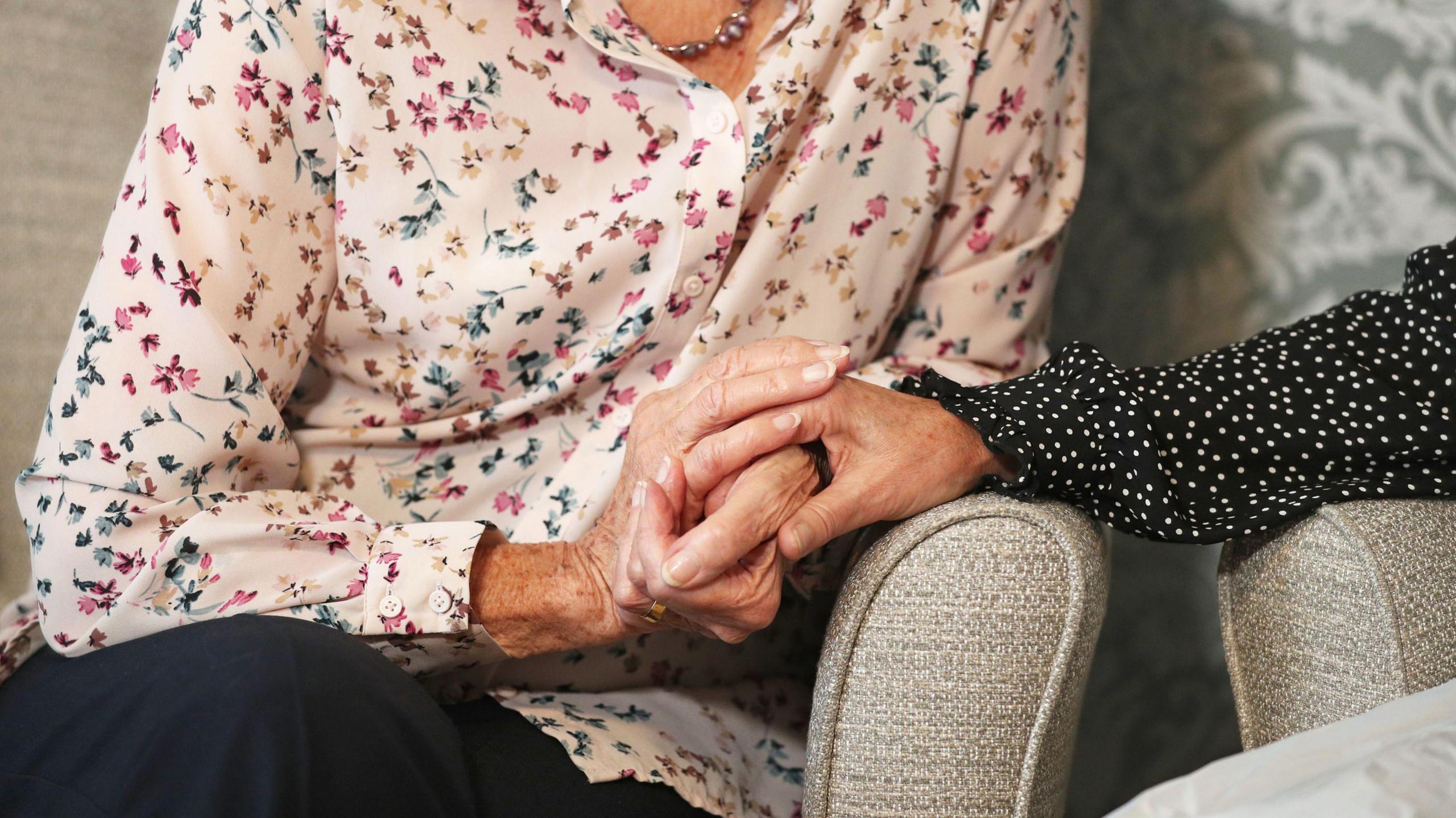Early diagnosis can 'improve dementia journey'

Dementia Awareness Week on the Isle of Man runs until 30 September
- Published
Understanding the symptoms of dementia and receiving an early diagnosis can help those with the condition to "live better for longer", a support charity has said.
The Alzheimer's Society teamed up with several other agencies to reduce the stigma of the condition and do some "myth-busting" at various events across the Isle of Man for Dementia Awareness Week.
Claire Cubberley from the society said while it could be a "difficult and challenging disease", medicines and "a raft of support" could help "slow down" the effects.
It is thought about 1,600 people on the Isle of Man have a formal dementia diagnosis, but the figure could be closer to 2,000 if those without a diagnosis were included.
Dementia is a symptom found in many diseases of the brain, including Alzheimer's.
Memory loss is the most common symptom, particularly the struggle to remember recent events.
Others can include changes to behaviour, mood and personality, becoming lost in familiar places, or being unable to find the right word in a conversation.
The campaign, which was also supported by the Forget Me Not Admiral Nurses, Manx Care, and Manx Decaf - which hosts monthly cafes for those affected by the condition - has seen pop-up events hosted in Braddan, Ramsey and Douglas.
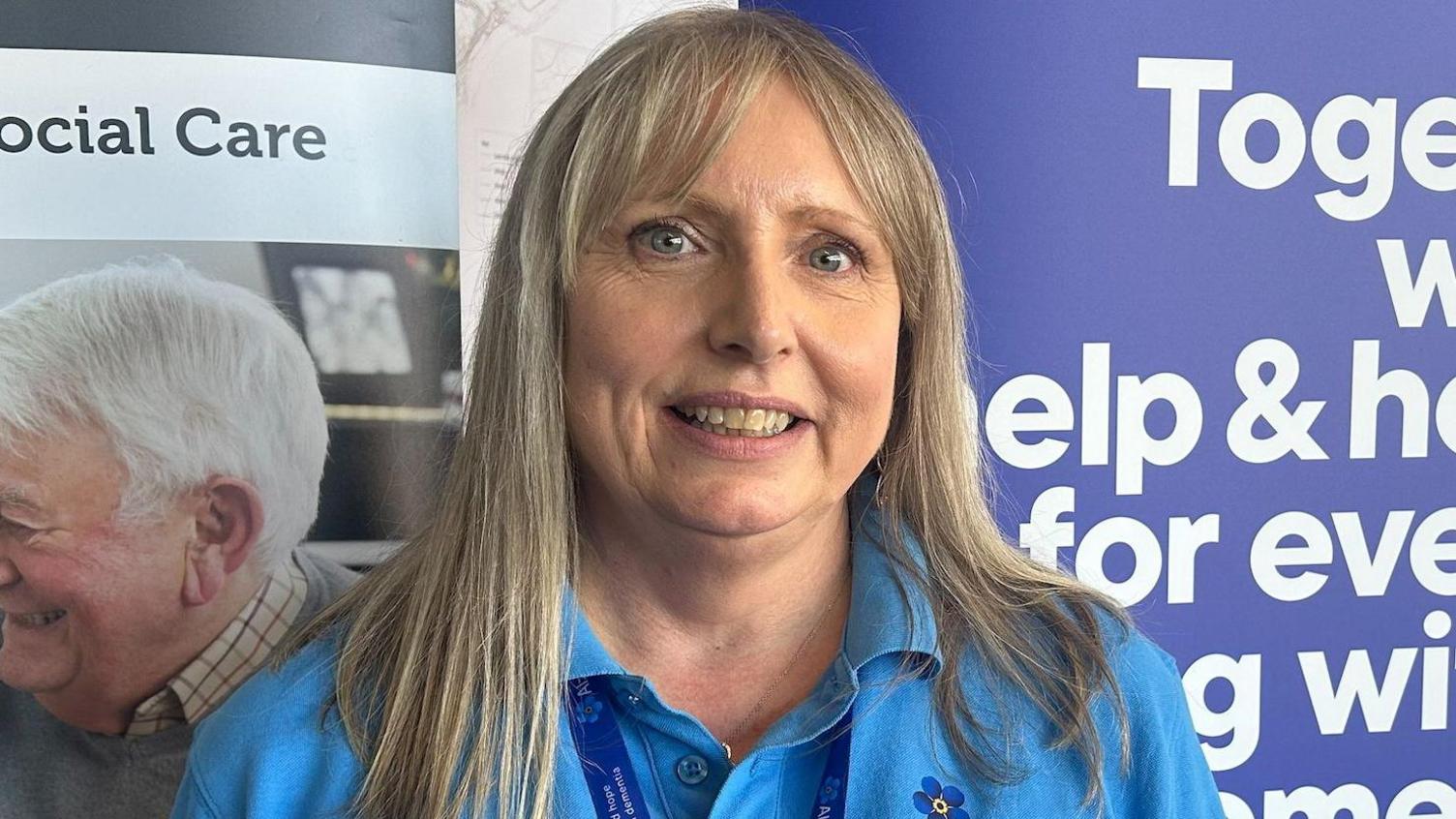
Claire Cubberley said a range of service were available to support those with a dementia diagnosis
Ms Cubberley explained the charity's work included key research into drugs and the diagnosis processes, alongside raising awareness in the community.
"We're trying to create a future where dementia no longer devastates lives," she said.
She said a common question was: "Why would you come forward and have a diagnosis for dementia if there's no cure?"
But, she said, education and understanding "removes fear and anxiety" for the person and their family, and meant services such as mental health support and access to social groups to assist at "every stage" could be put in place early.
Formalities such as wishes for finances or care options could also be put in place for those who "have time to make decisions for themselves", she said.
"People can live with this disease for 10 to 15 years. If a person comes forward earlier, the dementia journey can be little bit smoother," she added.
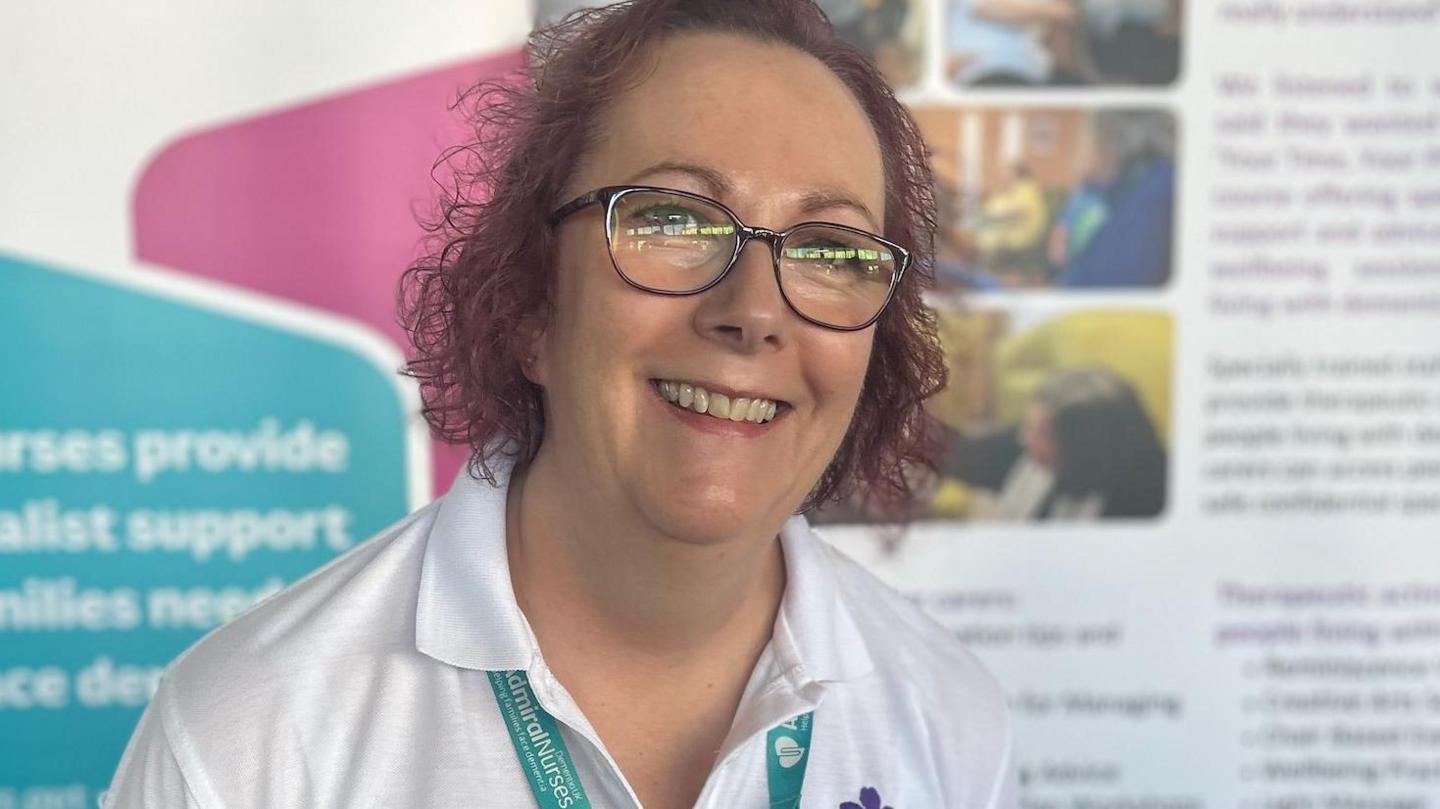
Jeanette Hogg said the campaign sought to challenge commonly held myths about dementia
Jeanette Hogg, lead Forget Me Not admiral nurse, said some of the myths the teams were keen to debunk were that "everyone who is old gets dementia or if my mum has had it, then I'm going to get it - that isn't the case".
She said "we all have brain changes, but not everyone develops a dementia" and confirmed that only 5% of dementias were genetic.
"If you've met one person with dementia, you've met one person with dementia," she said.
There were a range of conditions under the umbrella term "with different symptoms, and different treatment processes", she continued.
The campaign, she said, was also an opportunity to highlight the specialist support the admiral nurse service offers, which involved "a tool box of practical things they can do, as well as emotional and psychological support".
"We try to put scaffolding around the carers to support them too", she said.
"Dementia is a life limiting condition but people can still live really well with it."
Get in touch
Tell us which stories we should cover on the Isle of Man
Read more stories from the Isle of Man on the BBC, watch BBC North West Tonight on BBC iPlayer and follow BBC Isle of Man on Facebook, external and X, external.
Related topics
- Published1 July
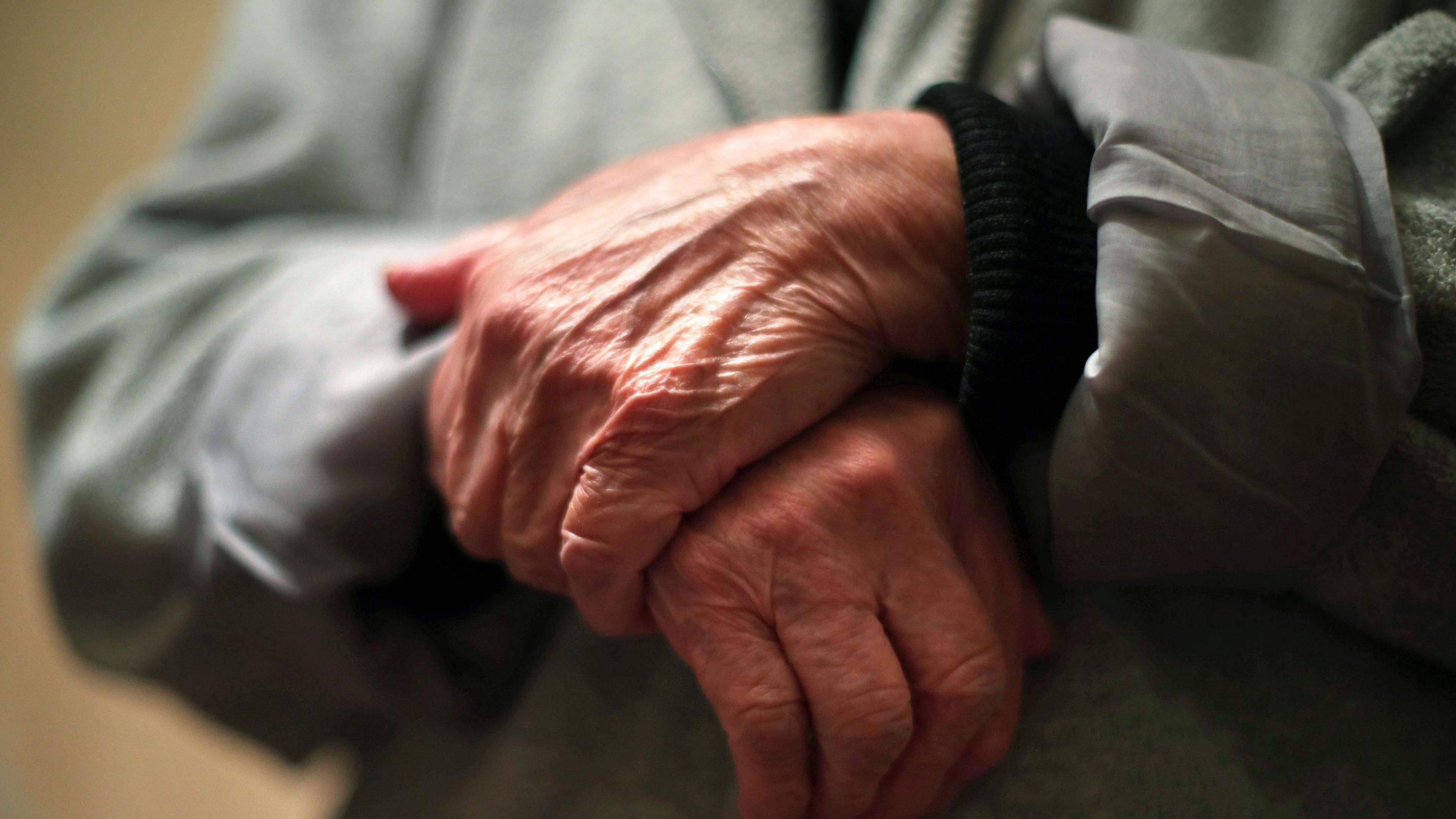
- Published24 September 2024
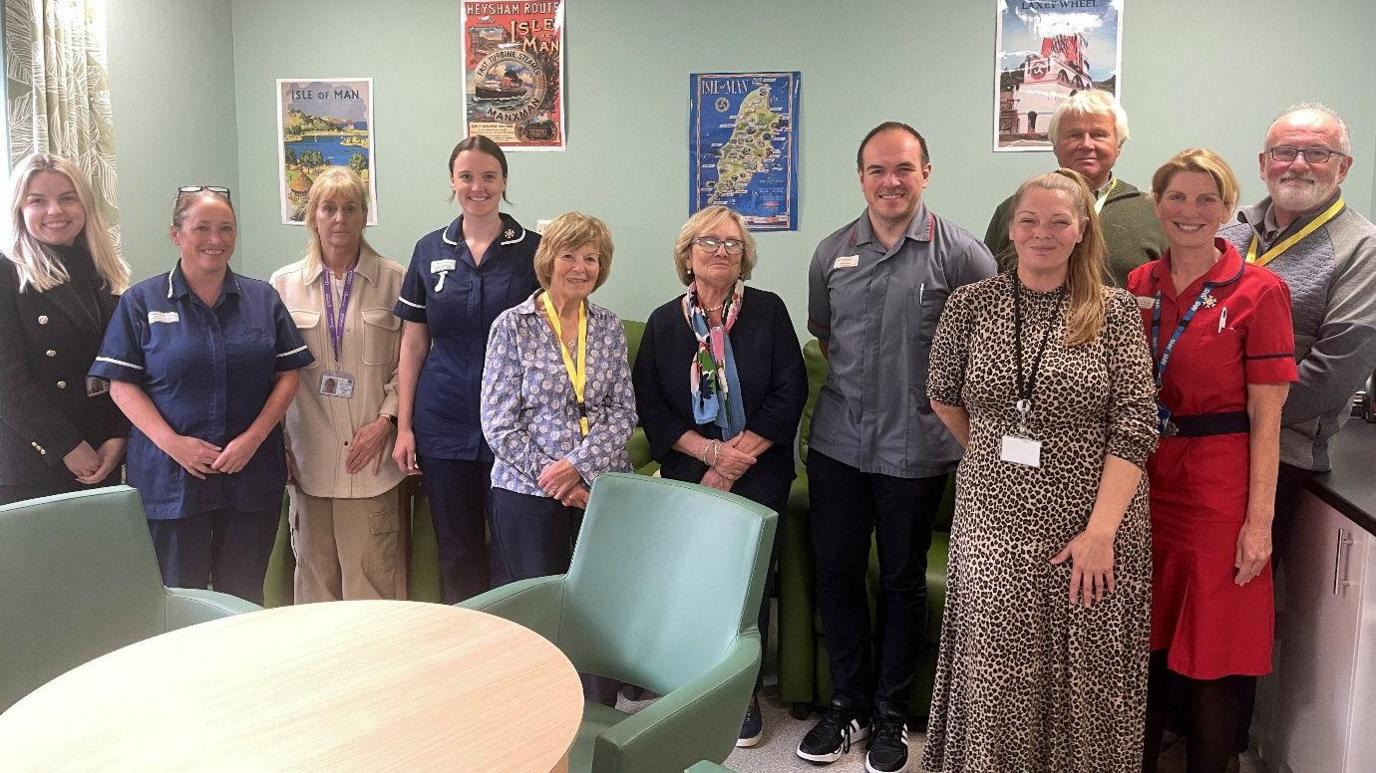
- Published4 March 2024
